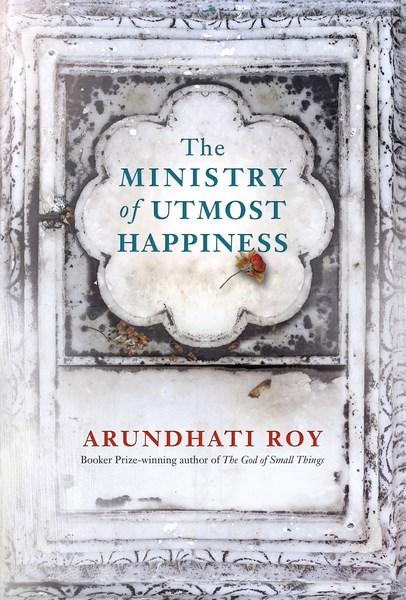At last, the author of that beautiful short novel The God of Small Things, Arundhati Roy, has written a new book, The Ministry of Utmost Happiness.
Here is an extract:
Where do old birds go to die?
She lived in the graveyard like a tree. At dawn she saw the crows off and welcomed the bats home. At dusk she did the opposite. Between shifts she conferred with the ghosts of vultures that loomed in her high branches. She felt the gentle grip of their talons like an ache in an amputated limb. She gathered they weren’t altogether unhappy at having excused themselves and exited from the story.
When she first moved in, she endured months of casual cruelty like a tree would – without flinching. She didn’t turn to see which small boy had thrown a stone at her, didn’t crane her neck to read the insults scratched into her bark. When people called her names – clown without a circus, queen without a palace – she let the hurt blow through her branches like a breeze and used the music of her rustling leaves as balm to ease the pain.
It was only after Ziauddin, the blind imam who had once led the prayers in the Fatehpuri Masjid, befriended her and began to visit her that the neighbourhood decided it was time to leave her in peace.

Long ago a man who knew English told her that her name written backwards (in English) spelled Majnu. In the English version of the story of Laila and Majnu, he said, Majnu was called Romeo and Laila was Juliet. She found that hilarious. “You mean I’ve made a khichdi of their story?” she asked. “What will they do when they find that Laila may actually be Majnu and Romi was really Juli?” The next time he saw her, the Man Who Knew English said he’d made a mistake. Her name spelled backwards would be Mujna, which wasn’t a name and meant nothing at all. To this she said, “It doesn’t matter. I’m all of them, I’m Romi and Juli, I’m Laila and Majnu. And Mujna, why not? Who says my name is Anjum? I’m not Anjum, I’m Anjuman. I’m a mehfil, I’m a gathering. Of everybody and nobody, of everything and nothing. Is there anyone else you would like to invite? Everyone’s invited.”
The Man Who Knew English said it was clever of her to come up with that one. He said he’d never have thought of it himself. She said, “How could you have, with your standard of Urdu? What d’you think? English makes you clever automatically?”
He laughed. She laughed at his laugh. They shared a filter cigarette. He complained that Wills Navy Cut cigarettes were short and stumpy and simply not worth the price. She said she preferred them any day to Four Square or the very manly Red & White.
She didn’t remember his name now. Perhaps she never knew it. He was long gone, the Man Who Knew English, to wherever he had to go. And she was living in the graveyard behind the government hospital. For company she had her steel Godrej almirah in which she kept her music – scratched records and tapes – an old harmonium, her clothes, jewellery, her father’s poetry books, her photo albums and a few press clippings that had survived the fire at the Khwabgah. She hung the key around her neck on a black thread along with her bent silver toothpick. She slept on a threadbare Persian carpet that she locked up in the day and unrolled between two graves at night (as a private joke, never the same two on consecutive nights). She still smoked. Still Navy Cut.
One morning, while she read the newspaper aloud to him, the old imam, who clearly hadn’t been listening, asked – affecting a casual air – “Is it true that even the Hindus among you are buried, not cremated?”
Sensing trouble, she prevaricated. “True? Is what true? What is Truth?”




